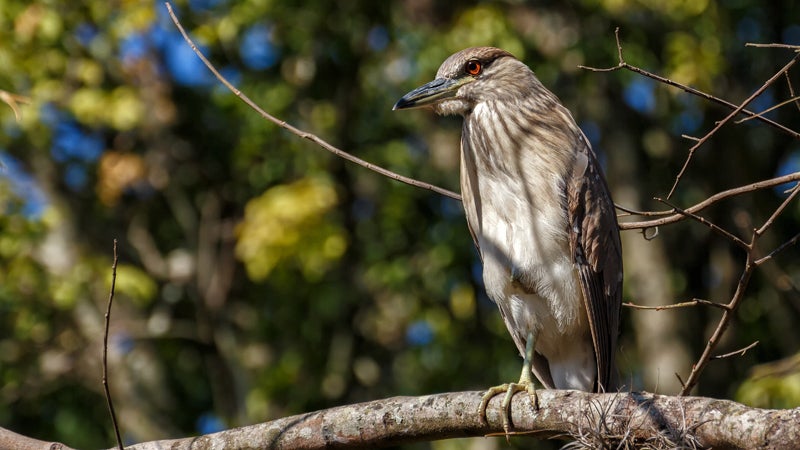Out of negligence or malice, five federally protected black-crowned night herons nesting above an Oakland post office experienced eviction and treatment worse than that of junk mail.
In response to birds defecating on mail trucks, the hired to remove overgrown branches above the facilities. The branches were fed into a wood chipperтАФalong with at least six one- to three-week-old birds.
Landscaping supervisor Joe Campos insists the crew had no knowledge of the birds, barely more mobile than rag dolls, which were mangled in the wood chipper and plummeted more than 25 feet to the ground.
“They were new. It’ll never happen again,”┬а. “It’s a big deal, thoughтАФwe don’t want to destroy┬аanything.”
Photographs show at least one dead baby heron dangling from a branch. Police arrived on the scene and stopped the bloodshed after neighbors began protesting outside the post office, which deeply regrets the incident and is pursuing damage control lamer than the evicted birds.
“I can certainly understand why people are upset,” said Postal Service spokesperson Augustine Ruiz. “The post office would never do anything to hurt wildlife. In fact, we issue stamps to protect birds. This is very┬аunfortunate.”
Conservationists like Lisa Owens Viani, director of , managed to collect five baby birds from the scene. The survivorsтАФwhich suffered injuries ranging from scrapes to ruptured air sacs to a beak mangling that required surgeryтАФare recuperating at International Bird Rescue in Fairfield.
“It was awful,” Viani said. “It’s especially appalling because these birds are so vulnerable and such a valuable part of the┬аecosystem.”
At less than two pounds fully grown, black-crowned night herons are the second most populous heron in the continent, living in the shadow of the better-known great blue heron. These birds are far from endangered and are sometimes considered threatening to other species, but Oakland has enjoyed the heronsтАЩ presence since the birds arrived in town a few years ago after construction projects and competing bird populations pushed them from other habitats.
Even if the community hadn’t taken to the herons, killing nesting migratory birds is a misdemeanor under the U.S. Migratory Bird Treaty Act. According to Steve Martarano, U.S. Fish and Wildlife spokesman, the act stipulates $2,000 fines per animal and up to six months in jail. ┬а
Martarano’s California equivalent, Andrew Hughan, said both USFW and California Fish and Wildlife officials are investigating the matter.
“If we decide to pursue this matter, it would most likely be criminal and go through a district attorney,” Hughan said.


